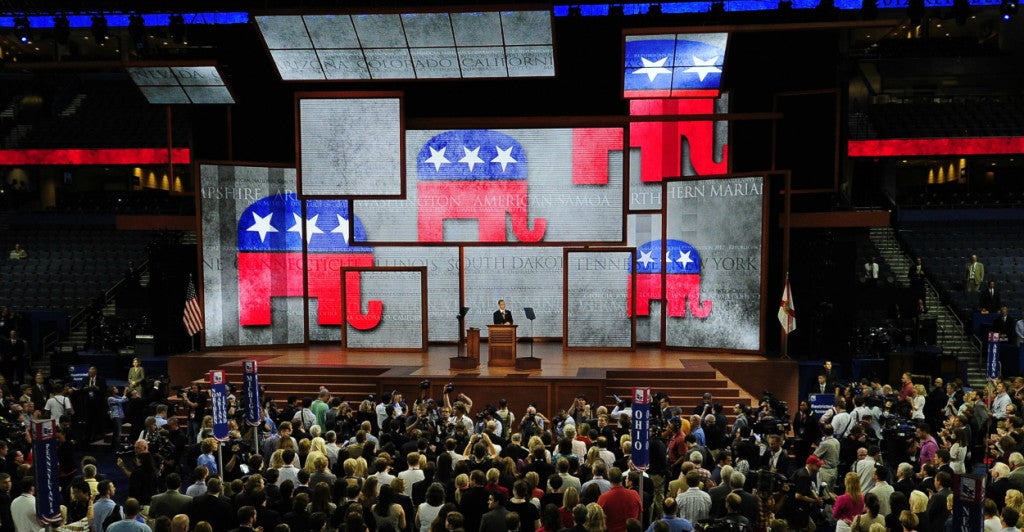Conservatives may be lamenting the absence of measures in the omnibus spending bill addressing Syrian refugees and Planned Parenthood, but the massive legislation notably left out a campaign finance measure opposed by both conservative lawmakers and Democratic groups.
Absent from the $1.1 trillion spending is a measure backed by Senate Majority Leader Mitch McConnell, R-Ky., that would’ve lifted the amount of money political parties can spend in coordination with a candidate.
The House Freedom Caucus, a group of around 40 conservative lawmakers, and 50 conservative leaders opposed the measure because of the “preferential treatment” they warned it would give national parties. If the spending limits were lifted, they said, smaller, grassroots organizations would be marginalized.
Freedom Caucus Chairman Rep. Jim Jordan, R-Ohio, told The Daily Signal McConnell’s campaign finance measure should’ve expanded to all political entities.
“I support free speech and want to expand the ability of all Americans to exercise their First Amendment rights,” he said. “But we should ensure that political parties do not receive special treatment over other entities, such as political action committees, when it comes to speech. Unfortunately, there did not seem to be a willingness to make changes that would ensure all Americans were treated equally and fairly under the law.”
Ken Cuccinelli, president of the Senate Conservatives Fund and one of the conservative leaders who spoke out against McConnell’s measure, said the provision served specific political interests.
“This rider was nothing more than a political earmark for Mitch McConnell, who wants more power to crush conservative candidates. It would have only benefited the national party committees and offered nothing to Americans who want to support conservative candidates and conservative PACs,” he said. Cuccinelli continued:
If Mitch McConnell wants to remove campaign finance restrictions, he should remove them for everyone. Then, and only then, can he claim to be advancing free speech.
McConnell, who opposes campaign finance rules, said his policy rider would have given more power to political parties during a time where super-PACs have increased sway because of their ability to raise unlimited amounts of money.
McConnell’s office did not immediately respond to requests for comment.
Conservative lawmakers in the House Freedom Caucus found themselves alongside government watchdog groups Public Citizen and Democracy 21 in opposing the majority leader’s campaign finance measure.
In a statement, Lisa Gilbert, director of Public Citizen’s Congress Watch division, said the organization was “happy that the congressional leadership stood firm against” McConnell’s provision.
To the contrary, the measure had the backing of David Keating and Brad Smith, president and chairman, respectively, of the Center for Competitive Politics.
Keating told The Daily Signal he believed that the measure was removed because of opposition from Democratic groups. However, he said the omnibus spending bill did include other favorable campaign finance measure, despite the absence of McConnell’s.
“It was strongly pro-First Amendment, and so we’d like to see more free speech, and the campaign finance law provided for it,” he said in an interview with The Daily Signal of McConnell’s measure. Keating continued:
I’m optimistic that it’s going to pass in the near future. To my mind, it’s not a matter of if, but when it will. … [Super-PACs] are putting a lot of pressure on the political parties because they’re not allowed to speak as independent groups. Members of Congress can do something about that by changing the law. I think it’ll happen; it’s just a question of when.
In a Wall Street Journal op-ed published earlier this month, Keating and Smith criticized the Freedom Caucus for its opposition to the measure and said the lawmakers in the group were objecting to “political free speech.”
“Scrapping coordination rules will remove an artificial wedge between parties and their candidates and encourage more honesty and transparency in campaign spending,” Keating and Smith said. “It will also benefit some Freedom Caucus members who face tougher general elections. Most important, it will enhance vital First Amendment rights.”
Under current campaign finance law, political parties can spend $48,000 in coordination with House candidates and up to $20 million for presidential nominees.
Congress has in the past used must-pass government spending bills as a vehicle for campaign finance measures.
During the debate last year over an omnibus dictating spending for 2015, former House Speaker John Boehner, R-Ohio, and Senate Minority Leader Harry Reid, D-Nev., inserted a measure into the legislation raising the amount an individual can contribute to party committees to between $97,200 and $777,600.
According to the Federal Election Commission, though, the contributions are restricted to accounts for activities like legal proceedings or party headquarters buildings.
